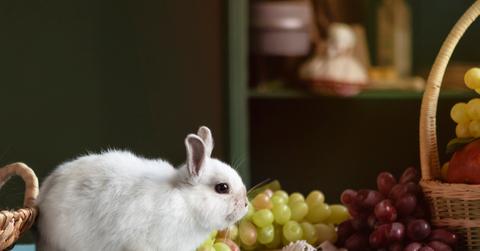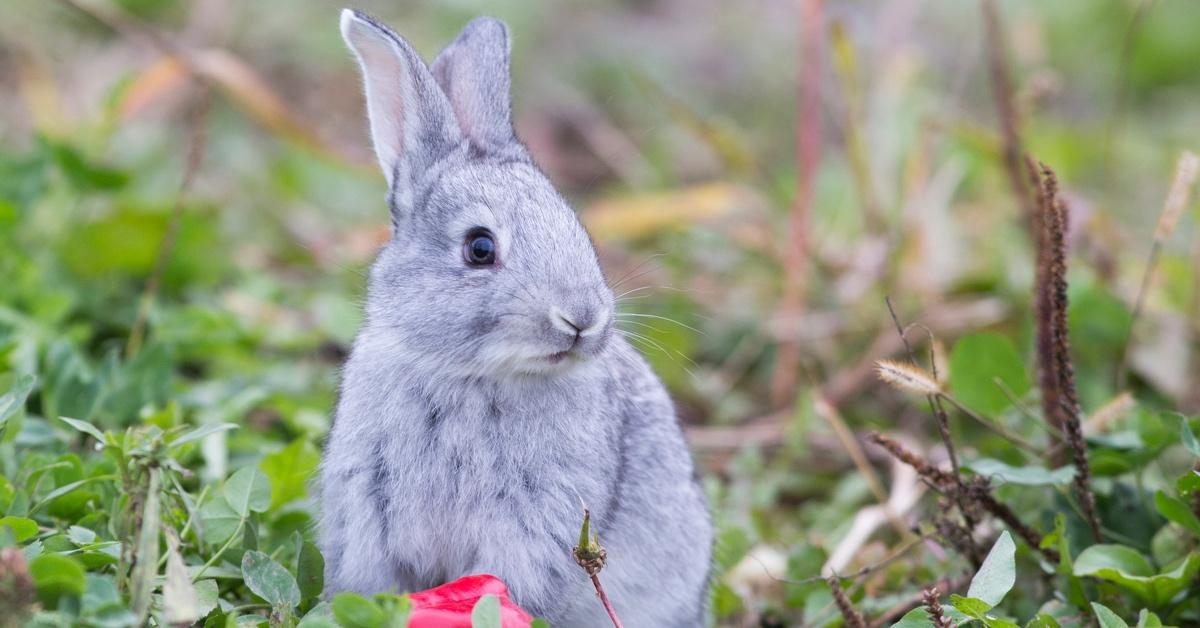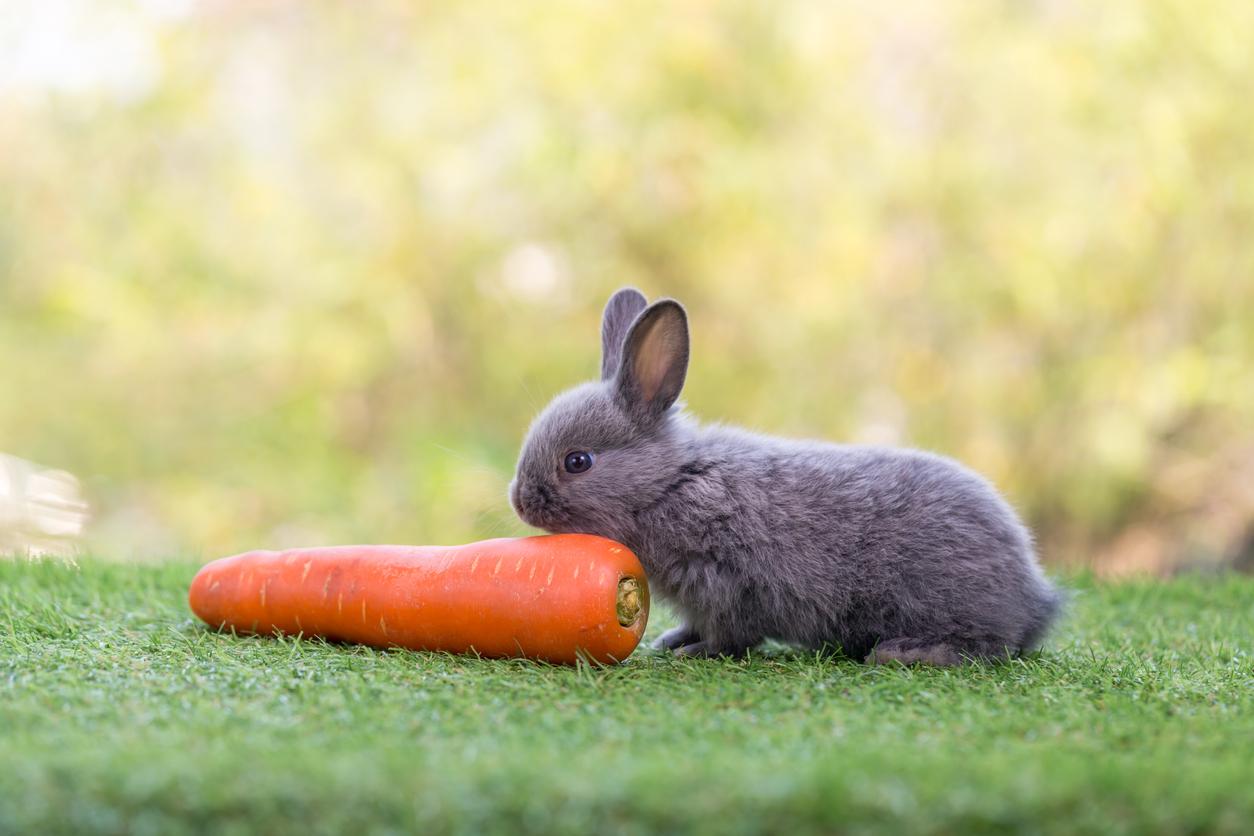Can Rabbits Have Grapes? Here Are the Fruits and Veggies You Can and Cannot Feed Rabbits
Much like famous cartoons depict, rabbits can enjoy carrots, but only in moderation.
Published Oct. 10 2024, 3:04 p.m. ET

Whether your family is caring for a companion rabbit or you're providing rehabilitation and care for a former test bunny, it is important to know what foods are safe and which are toxic to rabbits.
While it is important not to attract wild buns and feed wildlife of any kind, if you somehow find yourself caring for rabbits in need, you must know how to properly feed them, especially given their sensitive tummies and propensity towards gastrointestinal distress. Here is a list of the foods that rabbits can and cannot safely consume.

Can rabbits have grapes?
According to The Dodo, grapes are not toxic to rabbits and are safe for them to eat. The nutritional content of grapes can aid in the rabbit's digestion, and according to veterinarian Dr. Michelle Burch, “Grapes contain a small amount of fiber, B vitamins and vitamin K, which may be beneficial to rabbits."
Can rabbits eat cucumbers?
According to the Australian hay business Central Victoria Hay, rabbits can consume cucumbers, as the veggie is not toxic to rabbits. The skin of the cucumber is also safe for rabbits to eat, however, the hay farmers recommend washing the skin thoroughly in case pesticides or other debris may still be present.
Can rabbits eat strawberries?
Strawberries are loaded with beneficial nutrients for bunnies, and thankfully, they are safe for rabbits to consume, per The Dodo. According to veterinary nurse Kaitlyn Tullio, rabbits can also consume the leaves attached to strawberries. However, the fruit should only be given fresh (not canned or frozen) and in moderation due to its high sugar content.
Can rabbits eat tomatoes?
According to the online veterinarian service PangoVet, rabbits can consume tomatoes. However, you must be careful when providing tomatoes to rabbits because green tomatoes are a no-go, and stems and leaves contain toxic chemicals that will harm the rabbit.
To ensure your rabbit avoids potentially serious complications such as digestive distress, seizure, or death, only give them fresh red tomatoes free of the stem and leaves.

Can rabbits eat broccoli?
Answers are mixed as to whether rabbits can safely consume broccoli, so it is best to exercise caution. Adelphi University warns against giving broccoli to rabbits as it will give rabbits "painful gas," whereas PetsRadar suggests only administering a small amount of raw, uncooked broccoli in moderation.
Because of the very high potential for bloating and other potentially painful symptoms due in part to undigestible fiber content, this is one veggie best left off a rabbit's plate.
Can rabbits eat cabbage?
According to AAS Veterinary Services, cabbage is safe for rabbits to consume. However, as Berry Patch Farms notes in a comprehensive guide on cabbage benefits and risks, a substance in cabbage called goitrogens may increase the rabbit's risk for thyroid issues, and too much cabbage can cause digestive distress, including gas.
Should rabbits eat celery?
According to the Australian pet product business Somerzby, rabbits can eat celery. Celery given as a snack should be raw and uncooked, and the leaves are safe to eat.

Can rabbits eat carrots?
Per the Royal Society for the Prevention of Cruelty to Animals (RSPCA), root vegetables like carrots should only be given as an occasional treat.
Can rabbits eat spinach?
According to the RSPCA, leafy green vegetables like spinach are safe for rabbits to eat and comprise a healthy, varied, nutritious diet.
What can rabbits eat?
Now that you know some fruits and veggies that rabbits can and cannot consume, it's also helpful to know other foods rabbits can eat. According to Best Friends Animal Society, a varied diet for rabbits includes:
- Hay, which should comprise up to 90% of their diet.
- Pellets can be administered in small amounts.
- Fresh vegetables like leafy greens and herbs may be your rabbit's favorite part of their diet.
- Fresh fruit like seedless apples, berries, and melon, should be administered sparingly.